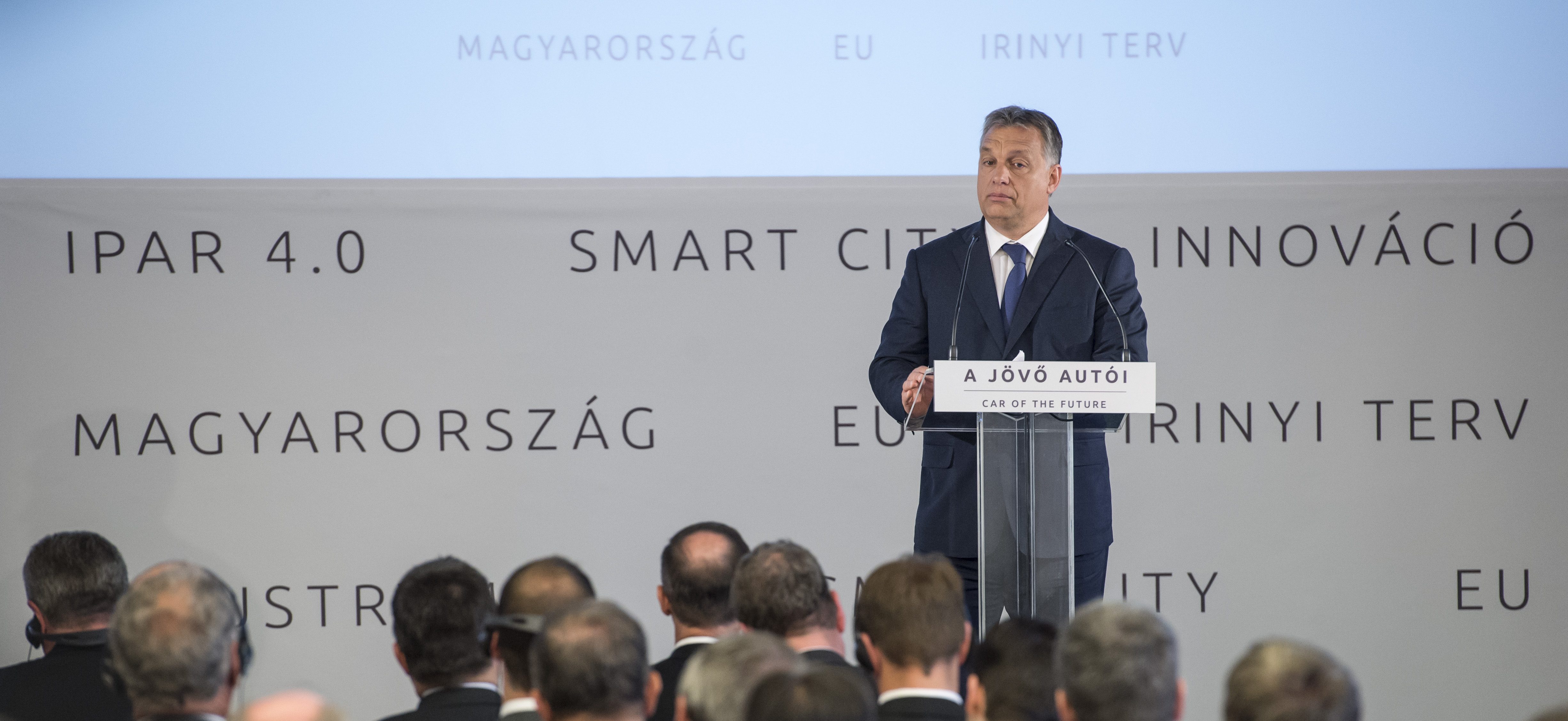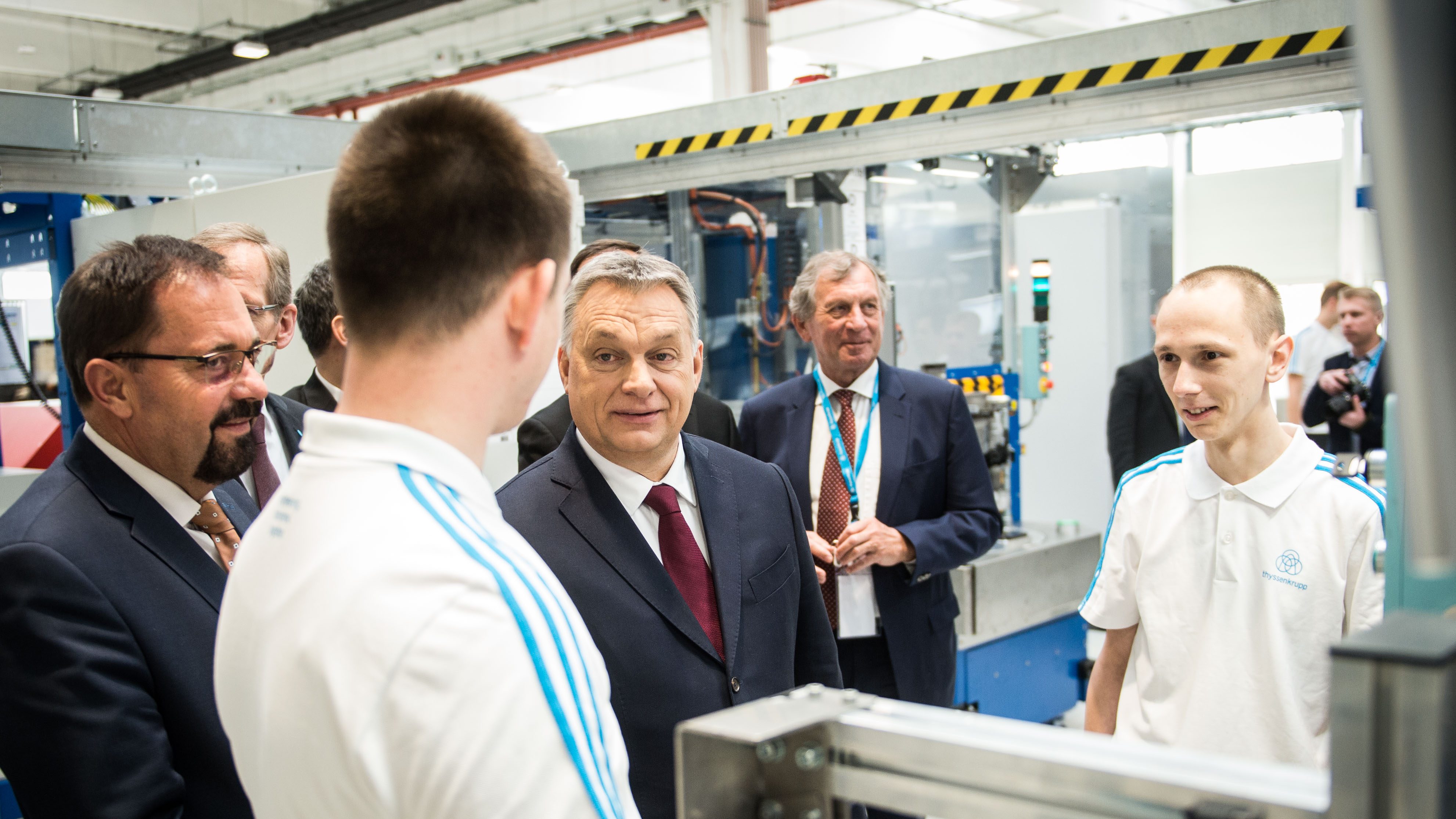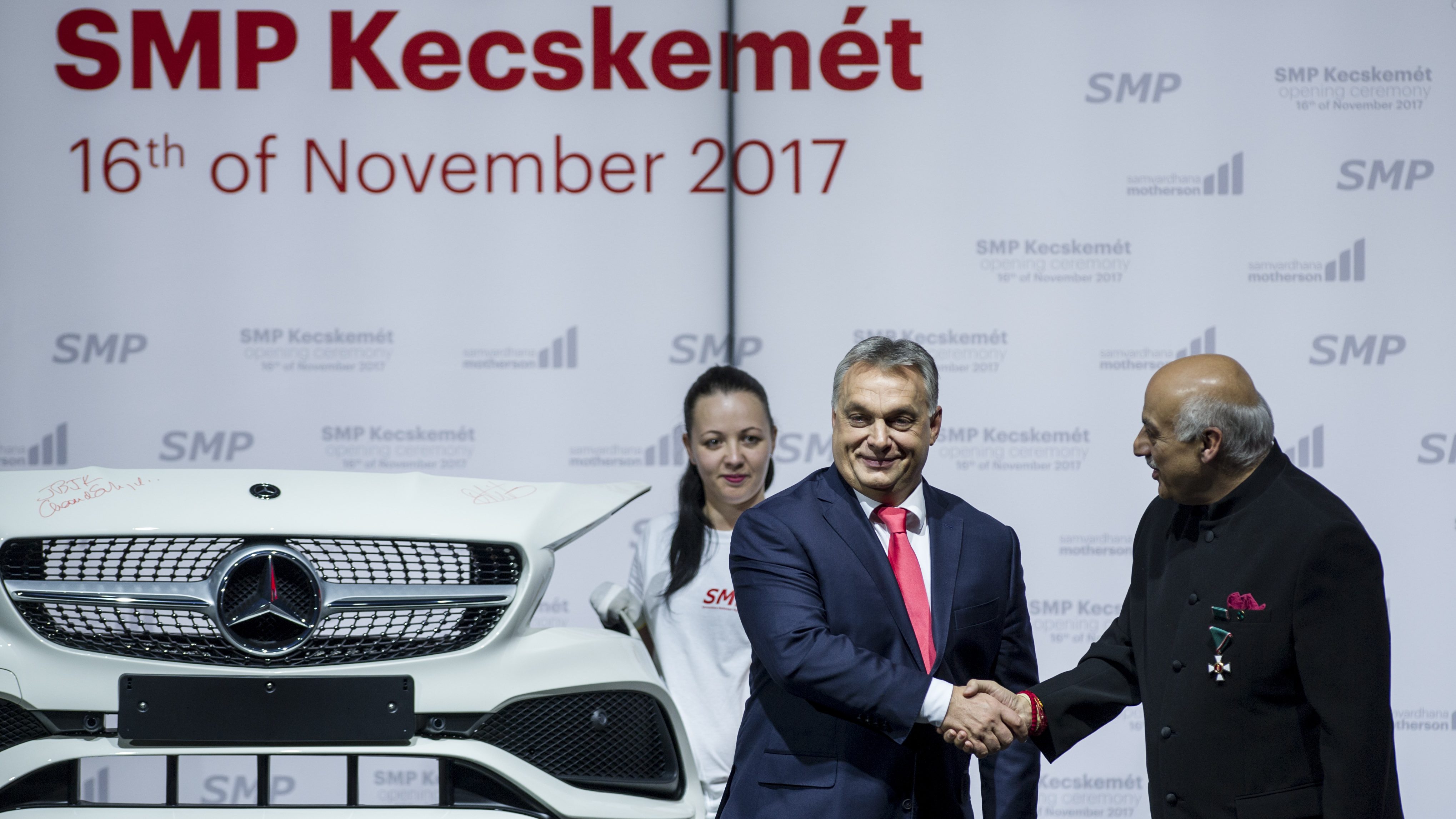
Depending on the country’s GDP figures, VAT on internet services could be reduced to 5 per cent in January 2018, and this would provide a major boost for the industry, Mr. Orbán said. He told his audience that the Government is considering a proposal for VAT on internet services to be reduced next year from 27 per cent to 18 per cent.
The Prime Minister announced that a Government decision will see the building of an automotive industry test track in Zalaegerszeg, for which the nearest rival outside Hungary will be 500 kilometres from the country’s borders. Among other things, the track will be used for testing driverless cars in controlled conditions.
Mr. Orbán also said that Hungary, along with the Central European region, can become a winner with industrial digitalisation, and he therefore urged cooperation between the countries of the region.

He said that that since 2010 the Government has been working on turning Hungary into Central Europe’s automotive industry innovation hub. He said he would like to see Hungary showing the fastest rate of growth in research, development and innovation activities, as well as in the production of cars. He added that to achieve this Hungary needs to encourage the largest automotive manufacturers to bring some of their development capacity to Hungary.
He also pointed out that over the last few years the Government has entered into 67 strategic agreements with large corporations present in Hungary. Twenty-three of these are active in the automotive industry, and 15 of the world’s 20 largest automotive industry suppliers are present in Hungary.
Mr. Orbán told his audience that everything connected to the production of vehicles in Hungary “is rising and on the increase”, though the GDP data of the last quarter has somewhat cast a shadow on this achievement. In his view, “the decline in the growth of production in the automotive industry” has also contributed to this. When new developments lead the automotive sector to recovery this will simultaneously boost GDP, he said.

He said that the production value of automotive manufacturing increased by more than 17 per cent last year, as did exports, which exceeded the 2014 level by 16 per cent. The number of workers employed in the sector increased, and in the last quarter of 2015 some 150,000 people were working in the automotive industry in Hungary. This represents a 13.2 per cent increase on the previous year. Mr. Orbán said that he sincerely hopes that by the end of this year this figure will be maintained, or even increased.
Last year the number of cars manufactured in Hungary exceeded half a million for the first time ever, he added.
Mr. Orbán encouraged everyone – from university directors and members of Hungarian academia to politicians – to look at the enormous technological challenges faced by conventional industry as being primarily a major opportunity; if they succeed in doing this, he said, Hungary can become a winner with digital transformation.

The Prime Minister said that digitalisation can create a new industry, and therefore the need could arise for the establishment of a standard European regulatory framework which is no longer encumbered with “national restrictions inherited from the past which negatively affect competitiveness”. With a pan-European digital regulatory framework, an industry can come into being in Europe which can also be competitive in global terms, he added.
In the Prime Minister’s opinion Europe is declining demographically, as well as in terms of its contribution to the gross world product, while Europe’s zone of influence is also shrinking. He said that digitalisation could help Europe return to progress and gain ground once again. In reference to the latest advances in the automotive industry, he warned that tens of thousands of jobs could be lost if Hungary is left out of the process of digital transformation in the industry.
He said that projections indicated that by 2025, 20 per cent of all new vehicles on the market will be partially or fully automated. If Hungary wants to be a part of this process, it must act urgently and decisively, he said. Mr. Orbán added that the question is whether Hungarian bureaucracy and industry, its business community and chambers, and the foreign companies based here will be able to swiftly fill the available framework with new content.


